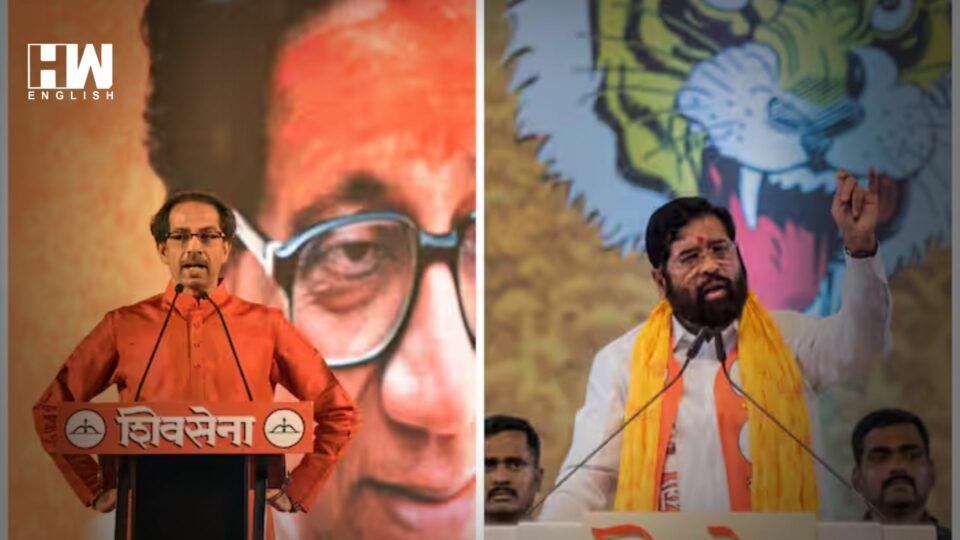In the political showdown, Maharashtra braces itself for a high-stakes electoral contest, particularly in the bustling metropolis of Mumbai. Seven critical constituencies in the state’s capital will witness a fierce clash of ideologies and alliances on 20th May. Diving into the intricacies of the electoral battlefield, the distribution of tickets sheds light on the strategic calculations. Uddhav Thackeray’s Shiv Sena has fielded candidates for four seats, with the Congress contesting on two. Meanwhile, the Mahayuti alliance has agreed upon a balanced formula, allocating three seats each to Shiv Sena and BJP candidates.
Varsha Gaikwad carries the Congress banner in Mumbai North Central, while Ujwal Nikkam, renowned for his involvement in the Mumbai terror attacks case, represents the BJP. Union Minister Piyush Goyal makes his electoral debut from Mumbai North, pitted against Congress nominee Bhushan Patil. EkShinde’snde’s Shiv Sena has nominated Ravindra Waikar in Mumbai North West, while Amol Kirtikar represents UdThackeray’sray’s faction. Sanjay Dina Patil vies for supremacy in Mumbai North East under the Shiv Sena banner, while Mihir Kotecha carBJP’sBJP’s hopes.
Meanwhile, the battle for Mumbai South sees familiar faces in Arvind Sawant, the sitting MP fielded by Shiv Sena, and Yamini Jadhav, representing the faction. Rahul Shewale, the incumbent MP from Mumbai South Central, extends supporShinde’snde’s Shiv Sena, while former Rajya Sabha MP Anil Desai seeks to consolidate UdThackeray’sray’s base.
Discussions around the representation of Marathi interests in a city celebrated for its linguistic diversity further enrich the electoral narrative in Mumbai. Over the decaMumbai’sbai’s parliamentary representation has witnessed a nuanced interplay between Marathi and non-Marathi lawmakers, reflectingcity’sity’s mosaic of cultures.
Historical data reveals intriguing patterns, with the Indian Express reporting 17 Marathi MPs from Congress and an equal number from Shiv Sena, contrasting with a higher count of non-Marathi MPs. Congress and BJP have had more non-Marathi MPs, with BJP boasting eight non-Marathi representatives compared to 7 Marathi MPs. Other parties, including Bhartiya Lok Dal, Janata Party, and CPI, have also contributed to Mumbai’sbai’srse parliamentary tapestry.
Mumbai, often hailed as one of India’s linguistically diverse cities, boasts a rich tapestry of languages cultivated over the past century. However, amidst this cultural mosaic, it has also served as the epicentre for the politics of nativism championed by parties like Thackeray’sray’s Sena and the Maharashtra Navnirman Sena. These parties have ardently advocated for protecting the economic and political interests of the ‘Marathi M’noos’.
A comprehensive analysis by the Indian Express covering Lok Sabha elections since 1951 revealed that nearly halMumbai’sbai’s elected representatives to the Lok Sabha have been non-Marathis. A total of 94 MPs have held the reins of power, with 42 of them, accounting for almost 45%, hailing from non-Marathi backgrounds. What’s even more intriguing is the political landscape within significant parties. Despite their national stature, both Congress and BJP have seen most of their Mumbai MPs as non-Marathis. Of the 43 Congress MPs elected, 60% were non-Marathis, while in the BJP camp, 53% of their MPs hailed from outside the Marathi fold.
ALSO READ: Gujarat: Names Of 700 Muslim Fishermen Deleted From Voters’ Lists
Remarkably, the Shiv Sena stands out as the lone bastion of Marathi representation, with all 15 MPs proudly carrying the Marathi banner. As Mumbai continues to evolve, this nuanced interplay of politics and identity promises to shape its future trajec”ory.” The necessity for non-Marathi representatioMumbai’sbai’s political arena stems largely fromcity’sity’s unique demographic composition.
As the former capital of Bombay State, encompassing parts of Gujarat and Karnataka, Mumbai has long been a melting pot of linguistic diversity, hosting significant populations of both Marathi and Gujarati speakers. StatuIndia’s economic hub has further attracted migrants nationwide, many aspiring for political representation. This diverse demographic landscape has compelled parties like Congress and BJP to address the demands for non-Marathi political voices. In the 2024 Lok Sabha elections, while Congress, vying for two seats, fielded Marathi candidates exclusively, BJP, contesting on three seats, allocated two to non-Marathi contenders.
Sociologists underscore the profound link between language and identity, noting a gradual shifMumbai’sbai’s identity towards becoming predominantly Hindi-speaking due to economic and demographic transformations. While recent quantitative data regarding the origins of Mumbaikars is unavailable, a 2011 census report sheds light on the linguistic landscape of the city. According to the census, the number of individuals identifying Hindi as their mother tongue surged by over 40%, from 25.88 lakh to 35.98 lahks. Respondents citing Marathi as their mother tongue declined by 2.64%, from 45.23 lakh to 44.04 lahks.
Additionally, the census data reveals a shift in population shares, with the proportion of those professing Marathi as their mother tongue decreasing from 37.77% in 2001 to 35.4% in 2011. Conversely, individuals claiming Hindi, Gujarati, and Urdu as their mother tongue increased from 46.79% to 52.12% during the same period. Mumbai’s evolving demographic makeup influences planning and governance and significantly shapes society’s social landscape.
As an independent media platform, we do not take advertisements from governments and corporate houses. It is you, our readers, who have supported us on our journey to do honest and unbiased journalism. Please contribute, so that we can continue to do the same in future.

